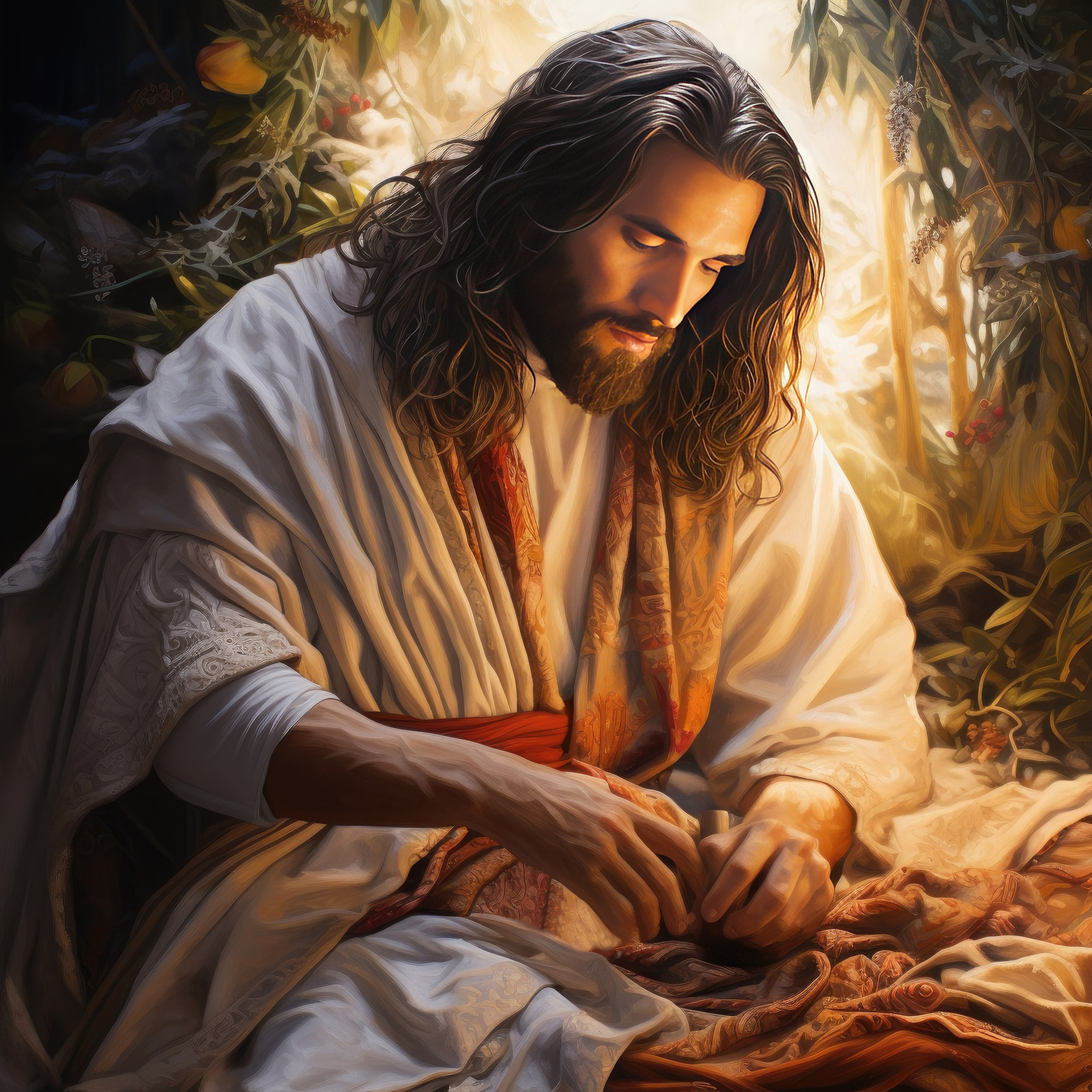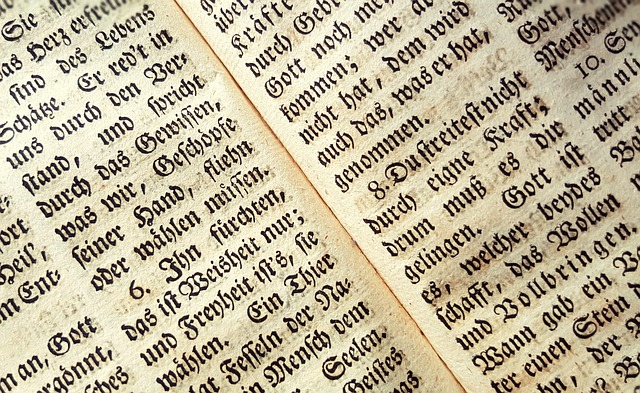Did Joseph Die Before Jesus? Examining the Evidence

Did Joseph Die Before Jesus? Examining the Evidence
Did Joseph, the earthly father of Jesus, die before Jesus’ public ministry began? This question has intrigued scholars and believers for centuries and raises the question: did Joseph die before Jesus? In this thought-provoking exploration, we will examine the biblical accounts and various theories that attempt to shed light on the life and death of Joseph, including his role as Jesus’ earthly father, his presence and absence in the Gospels, and the impact of his life and death on the Holy Family.
Key Takeaways
-
Joseph of Nazareth was an important figure in the Gospels, pivotal in Jesus’ upbringing.
-
Biblical evidence suggests that Joseph had passed away before Jesus’ public ministry began.
-
Saint Joseph is venerated as a patron saint of fathers and workers for his unwavering faith and commitment to providing for his family.
Joseph's Presence and Absence in the Gospels

Joseph, a carpenter by trade, played a crucial role as Jesus’ earthly father, appearing in several Gospel accounts. He was betrothed to Mary and despite her surprising pregnancy, he chose to marry her and raise Jesus, the carpenter’s son, as his own child, following the instructions of an angel. In this nurturing environment, Jesus began his life and eventually embarked on his divine mission.
However, upon examining the New Testament, instances where Joseph is notably absent from Jesus’ later life events become evident.
Joseph's Role as Earthly Father
Joseph, a descendant of David, made his living as a carpenter in Nazareth. He married Mary, and together they faced the challenges of her unexpected pregnancy. Despite Jesus having a Heavenly Father, Joseph’s faith in God guided him to embrace his role as Jesus’ earthly father. Joseph not only provided for his family through his carpentry but also potentially passed on the trade to Jesus, thereby influencing his upbringing.
Joseph’s commitment to Mary and Jesus was evident in various instances throughout the Gospels. He protected them from potential threats, such as when he took his family to Egypt to evade King Herod’s decree. His loyalty and adherence to God’s guidance were instrumental in ensuring Jesus’ safety and well-being during his early life.
Appearances of Joseph in the Gospels
The Gospels highlight Joseph’s involvement in various key events in Jesus’ life, including his birth in Bethlehem, the escape to Egypt from King Herod’s wrath, and the temple visit in Jerusalem when Jesus was 12 years old. Joseph’s role as Jesus’ earthly father is evident in each of these accounts, as he provides for and protects his family.
Nevertheless, as we further explore the Gospels, Joseph’s presence begins to dwindle. He is not mentioned during Jesus’ public ministry, crucifixion, or resurrection. This absence has led scholars and believers to speculate about the circumstances of Joseph’s death and whether he passed away before Jesus’ public ministry began.
Instances Where Joseph is Not Mentioned
The last mention of Joseph in the Gospels occurs when Jesus is 12 years old, during the temple visit in Jerusalem. From then on, Joseph is not mentioned in any of the Gospel accounts, even during critical moments such as Jesus’ crucifixion.
Further supporting this theory is the fact that Jesus refers to himself as the “son of Mary” in the Gospel of Mark rather than the “son of Joseph”. Additionally, when Jesus is on the cross, he entrusts the care of his mother, Mary, to the Apostle John, suggesting that Joseph was no longer alive to care for her.
Theories About Joseph's Death

Several theories have surfaced attempting to explain Joseph’s death and his conspicuous absence from the Gospels during Jesus’ public ministry. Some biblical evidence and Catholic tradition provide clues about the timing and circumstances of his death, but it is important to remember that these theories remain speculative and may not have concrete evidence to support them.
In the following discourse, we will delve deeper into some of these hypotheses, such as:
-
The notion that Joseph passed away before the commencement of Jesus’ public ministry
-
The theory that Joseph’s death foreshadowed Jesus’ passion
-
An alternative theory suggests that Joseph held enough political authority to warrant a burial in Israel with honors similar to those bestowed upon Jacob.
Biblical Evidence for Joseph's Death
Joseph’s absence from key Gospel passages suggests that he may have died before Jesus’ public ministry began. Church Fathers also infer that Joseph passed away before Jesus began his public ministry. This is generally accepted among biblical scholars, reinforcing the idea that Joseph died before Jesus’ ministry began.
The crucifixion account further supports this theory. When Jesus is on the cross, he entrusts the care of his mother, Mary, to the Apostle John. This implies that Joseph was no longer alive to care for her, strengthening the belief that Joseph died sometime before Jesus’ public ministry began, and it was after this period that Jesus died.
Catholic Tradition on Joseph's Death
Catholic tradition holds that Joseph died peacefully in the presence of Jesus and Mary. According to this tradition, Joseph passed away when Jesus was an adolescent, likely in 18 or 19 AD, which is the time of “Joseph when Jesus died”, indicating that he died before Jesus’ public ministry began.
The impact of Joseph’s death on the Holy Family would have been significant, leaving Jesus and Mary without a paternal figure to provide support and protection. This may have influenced Jesus’ instruction for the Apostle John to care for Mary after his crucifixion, ensuring she would be cared for in Joseph’s absence.
Comparing Joseph to Other Figures Named Joseph in the New Testament

Several other figures named Joseph appear in the New Testament, but it is important not to confuse them with Jesus’ earthly father, Joseph of Nazareth. These other Josephs include Joseph of Arimathea, who provided Jesus’ tomb after the crucifixion, and Joseph Barsabbas, a disciple who was considered a replacement for Judas Iscariot.
In order to appreciate the role and significance of Joseph, Jesus’ earthly father, it’s worth examining these other New Testament figures named Joseph and understanding how their lives and actions stand distinct from that of Joseph of Nazareth.
Joseph of Arimathea
Joseph of Arimathea was a wealthy man who played a pivotal role in the entombment of Jesus Christ after the crucifixion. He was a secret follower of Jesus and offered his own tomb for Jesus’ burial. Joseph of Arimathea is portrayed as a righteous man seeking God's kingdom.
Joseph of Arimathea should not be mistaken for Joseph of Nazareth, Mary’s husband and Jesus’ earthly father. While both men named Joseph had significant roles in the New Testament, their lives and actions were distinct from one another.
Joseph Barsabbas
Joseph Barsabbas, also known as Justus, was a disciple of Jesus who was considered for the position of apostle after Judas Iscariot had betrayed Jesus. He was one of two candidates selected to fill the vacancy left by Judas, but ultimately, the lot fell to Matthias.
Despite Joseph Barsabbas’ significant role in the early church, he should be distinguished from Joseph of Nazareth, Mary’s husband, and Jesus’ earthly father. Each Joseph had a unique role and impact on the events of the New Testament, but their lives and actions were separate and distinct from one another.
The Significance of Joseph's Life and Death

The life and death of Joseph profoundly affected Jesus and the Holy Family. As Jesus’ earthly father, Joseph provided guidance, protection, and support to both Jesus and Mary. His faithfulness and obedience to God likely influenced Jesus’ upbringing and teachings, shaping the foundations of his ministry.
With Joseph’s death, the Holy Family faced the loss of a beloved husband and father figure, as Joseph married Mary years prior. This loss would have been particularly poignant for Mary, who became a widow, and for Jesus, who would later entrust the care of his mother to the Apostle John during his crucifixion. The Brothers James and the Apostle John played significant roles in the early Christian community.
The legacy of Joseph’s life and death continues to be remembered and revered in the Catholic Church.
Joseph's Influence on Jesus
Throughout his life, Joseph’s faithfulness and obedience to God shine through, from his choice to marry Mary despite her pregnancy to his readiness to heed God’s guidance for the protection of his family. These qualities likely substantially affected Jesus’ upbringing and teachings, as he learned to be obedient to God’s will and follow His commands, just as Joseph did.
This influence can be seen in Jesus’ teachings on love, mercy, and justice, which may have been shaped by the example set by his earthly father. Joseph’s life and actions serve as a testament to the importance of faithfulness, obedience, and love in the face of adversity and challenge, as he helped to teach Jesus these values.
The Impact of Joseph's Death on the Holy Family
Joseph’s death would have significantly impacted the Holy Family, as they experienced the loss of a husband, father, and protector. Mary was left a widow and would have faced the challenge of adjusting to life without her spouse. Jesus, too, would have felt the loss of his earthly father, who had provided him with guidance and support throughout his childhood.
This loss may have influenced Jesus’ instruction for the Apostle John to care for Mary after his crucifixion, ensuring she would be taken care of in Joseph’s absence. The memory of Joseph’s life and death would continue to shape the lives of Jesus and Mary and the broader Christian tradition.
Joseph's Legacy and Veneration

Owing to Joseph’s legacy as Jesus’ earthly father and his profound influence on the Holy Family, he is venerated as a patron saint in the Catholic Church. His role as the protector and guardian of Jesus and Mary has resonated with believers throughout history, and his life continues to inspire and guide the faithful today.
In recent years, Joseph’s importance in the Catholic Church has been further highlighted by Pope Francis, who declared 2021 to be the Year of St. Joseph. This acknowledgment underscores the lasting impact of Joseph’s life and death on the Christian tradition and the lives of believers around the world.
Patron Saint of Fathers and Workers
Saint Joseph’s role as Jesus’ earthly father and his profession as a carpenter is honored as he is venerated as the patron saint of fathers and workers. His unwavering faith in God and his commitment to providing for and protecting his family have made him an enduring symbol of strength, love, and devotion for fathers and workers alike.
Joseph is also invoked as the patron saint of those seeking a holy death, as Catholic tradition holds that he passed away peacefully in the presence of Jesus and Mary, an event sometimes referred to as the “Joseph die” moment. Through his patronage, Joseph continues to offer guidance, support, and inspiration to those who look to him as a model of faith and devotion.
Pope Francis and the Year of St. Joseph
In December 2020, marking the 150th anniversary of St. Joseph being solemnly declared Patron of the Catholic Church, Pope Francis declared 2021 to be the Year of St. Joseph. This declaration highlights the importance and relevance of Joseph’s life and legacy within the Catholic faith, emphasizing his capacity as an intercessor, supporter, and guide in times of difficulty.
The Year of St. Joseph serves as a reminder of the vital role Joseph played in the life of Jesus and the Holy Family and his enduring impact on the Christian tradition. Through this recognition, believers around the world are encouraged to reflect on the lessons and virtues embodied by Joseph and to seek his guidance and intercession in their own lives.
Summary
Throughout this exploration of Joseph’s life and death, we have examined biblical accounts, theories, and Catholic tradition to shed light on the role and impact of Jesus’ earthly father. From his faithful obedience to God to his unwavering devotion to Mary and Jesus, Joseph’s life is a powerful example of love, faith, and perseverance in the face of adversity.
As we reflect on the legacy and veneration of St. Joseph, we are reminded of the enduring influence his life and death have on the Christian faith. May his example continue to inspire and guide believers around the world as they seek to follow in the footsteps of this humble and faithful servant of God.
Frequently Asked Questions
Did Saint Joseph die before Jesus?
Most biblical scholars believe that Saint Joseph died before Jesus’ crucifixion, as he was not present at the event, and Jesus entrusted his mother to someone outside the family.
What age was Jesus when Joseph died?
At the time of Joseph’s death, Jesus was around 19 years old. what year was christ crucified
how long ago did jesus die
how many years ago was jesus
jesus dad
joseph bible father
jesus death
jesus dies
jesus's death
jesus birth
eternal life
who is jesus parents
did jesus cry when joseph died
how did the virgin mary die
how long was jesus dead
is jesus still alive
jesus wept
jesus cried
lord jesus
jesus arrived
holy spirit
